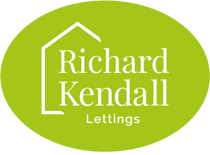Buying a second property in the UK can be a complicated process as the government seeks to cut down on second property ownership due to the housing shortage. This guide will discover the ins and outs of buying a second property.
What Makes a Second Property Different from the First? Buying a second property comes with its own unique set of challenges and considerations. Unlike your first property, where you may have enjoyed tax breaks such as no or lower stamp duty and a wide range of mortgage options. With a second property, there will not be as many mortgage products available as the key requirement for residential mortgages is to reside in the house you are buying.
Will I Need a Different Type of Mortgage?
Yes, if you are buying a second property, you will need a different type of mortgage. The specific type of mortgage required will depend on how you plan to use the property. For example, if you intend to let out your second property to holidaymakers, you will need a holiday let mortgage. On the other hand, if the second property will be your own holiday home, you will require a residential second home mortgage. Our expert team of mortgage brokers can provide guidance and help you find the most suitable product based on your needs.
How Much Can I Borrow for a Second Property?
The amount you can borrow for a second property depends on its purpose. If you plan to buy a property for buy-to-let purposes, the lender will primarily consider the property’s monthly rental assessment. If the rental income meets the lender’s calculation, you can typically borrow up to 75% loan-to-value (LTV). However, if the second property will be another residence, you may face challenges with mortgage affordability. Your income is likely to be stretched from your primary residence, especially if you already have a mortgage on it. Consequently, you should expect to borrow less for your second property compared to your primary residence.
What Costs are Involved with Buying a Second Property?
Conveyancing Costs
Conveyancing costs in the UK typically average around £1,500. These costs cover various aspects, including property searches, contract drafting, and filing ownership with the Land Registry. Insurance Costs
You will need buildings cover (home insurance) for your second property, and since you may not occupy the property for most of the year, the insurance premiums can be higher.
Stamp Duty
Stamp Duty Land Tax (SDLT) applies to second properties and is charged at the standard rate plus an additional surcharge of 3%. The rules for second home stamp duty are complex and even apply to properties outside the UK. For instance, if you own a property in France and are purchasing your first home in the UK, you will be subject to the second home stamp duty rate. The amount of stamp duty payable varies based on the property’s value, with a property valued at £300,000 incurring a stamp duty charge of £11,500.
Deposit
As with a standard residential mortgage, you will need to provide a deposit for your second property. The minimum deposit requirement for a residential mortgage on a second property can vary depending on the lender but generally tends to be around 15-20% of the purchase price. The deposit requirements for a second residential property are often higher than for a first time buyer. How a Mortgage Broker Can Help A mortgage broker is vital when trying to secure a second home mortgage. With access to a wide array of lenders and mortgage products, a broker can identify options specifically suited to the borrower’s financial profile and the unique considerations of purchasing a second home.
Are you looking to buy a second home? Richard Kendall Estate Agent works in partnership with SMH Finance LLP who would provide the 𝗺𝗼𝗿𝘁𝗴𝗮𝗴𝗲 𝗮𝗱𝘃𝗶𝗰𝗲. Speak to one of SMH Finance LLP specialists today








